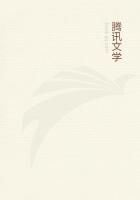And the seed coat still keeps its shape, most people think it a seed still, and for all one knows it may still think itself a seed, vigorous and alive. "Your Victorian kingdom," said Asano, "was like that--king-ship with the heart eaten out. "The landowners--the barons and gentry--began ages ago with King John; there were lapses, but they beheaded King Charles, and ended practically with King George mere husk of a king . . . the real power in the hands of their parliament. But the Parliament--the organ of the land-holding tenant-ruling gentry--did not keep its power long. The change had already come in the nineteenth century. The franchises had been broadened until it included masses of ignorant men, "urban myriads," who went in their featureless thousands to vote together. And the natural consequence of a swarming constituency is the rule of the party organisation. Power was passing even in the Victorian time to the party machinery, secret, complex, and corrupt. Very speedily power was in the hands of great men of business who financed the machines. A time came when the real power and interest of the Empire rested visibly between the two party councils, ruling by newspapers and electoral organisations--two small groups of rich and able men, working at first in opposition, then presently together.
There was a reaction of a genteel ineffectual sort.
There were numberless books in existence, Asano said, to prove that--the publication of some of them was as early as Graham's sleep--a whole literature of reaction in fact. The party of the reaction seems to have locked itself into its study and rebelled with unflinching determination--on paper. The urgent necessity of either capturing or depriving the party councils of power is a common suggestion underlying all the thoughtful work of the early twentieth century, both in America and England. In most of these things America was a little earlier than England, though both countries drove the same way.
That counter-revolution never came. It could never organise and keep pure. There was not enough of the old sentimentality, the old faith in righteousness, left among men. Any organisation that became big enough to influence the polls became complex enough to be undermined, broken up, or bought outright by capable rich men. Socialistic and Popular, Reactionary and Purity Parties were all at last mere Stock Exchange counters, selling their principles to pay for their electioneering. And the great concern of the rich was naturally to keep property intact, the board clear for the game of trade. Just as the feudal concern had been to keep the board clear for hunting and war. The whole world was exploited, a battle field of businesses; and financial convulsions, the scourge of currency manipulation, tariff wars, made more human misery during the twentieth century--because the wretchedness was dreary life instead of speedy death--than had war, pestilence and famine, in the darkest hours of earlier history.
His own part in the development of this time he now knew clearly enough. Through the successive phases in the development of this mechanical civilisation, aiding and presently directing its development, there had grown a new power, the Council, the board of his trustees. At first it had been a mere chance union of the millions of Isbister and Warming, a mere property holding company, the creation of two childless testators' whims, but the collective talent of its first constitution had speedily guided it to a vast influence, until by title deed, loan and share, under a hundred disguises and pseudonyms it had ramified through the fabric of the American and English States.
Wielding an enormous influence and patronage, the Council had early assumed a political aspect; and in its development it had continually used its wealth to tip the beam of political decisions and its political advantages to grasp yet more and more wealth. At last the party organisations of two hemispheres were in its hands; it became an inner council of political control. Its last struggle was with the tacit alliance of the great Jewish families. But these families were linked only by a feeble sentiment, at any time inheritance might fling a huge fragment of their resources to a minor, a woman or a fool, marriages and legacies alienated hundreds of thousands at one blow. The Council had no such breach in its continuity.
Steadily, steadfastly it grew.
The original Council was not simply twelve men of exceptional ability; they fused, it was a council of genius. It struck boldly for riches, for political influence, and the two subserved each other. With amazing foresight it spent great sums of money on the art of flying, holding that invention back against an hour foreseen. It used the patent laws, and a thousand half-legal expedients, to hamper all investigators who refused to work with it. In the old days it never missed a capable man. It paid his price. Its policy in those days was vigorous--unerring, and against it as it grew steadily and incessantly was only the chaotic selfish rule of the casually rich. In a hundred years Graham had become almost exclusive owner of Africa, of South America, of France, of London, of England and all its influence--for all practical purposes, that is--a power in North America--then the dominant power in America. The Council bought and organised China, drilled Asia, crippled the Old World empires, undermined them financially, fought and defeated them.
And this spreading usurpation of the world was so dexterously performed--a proteus--hundreds of banks, companies, syndicates, masked the Council's operations--that it was already far advanced before common men suspected the tyranny that had come.














